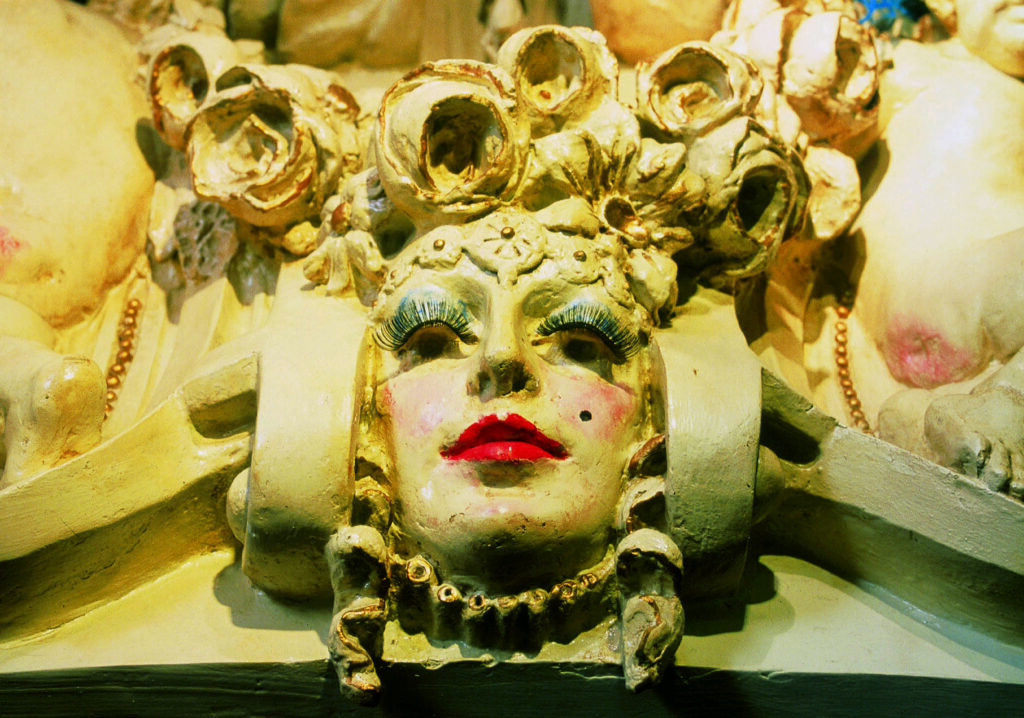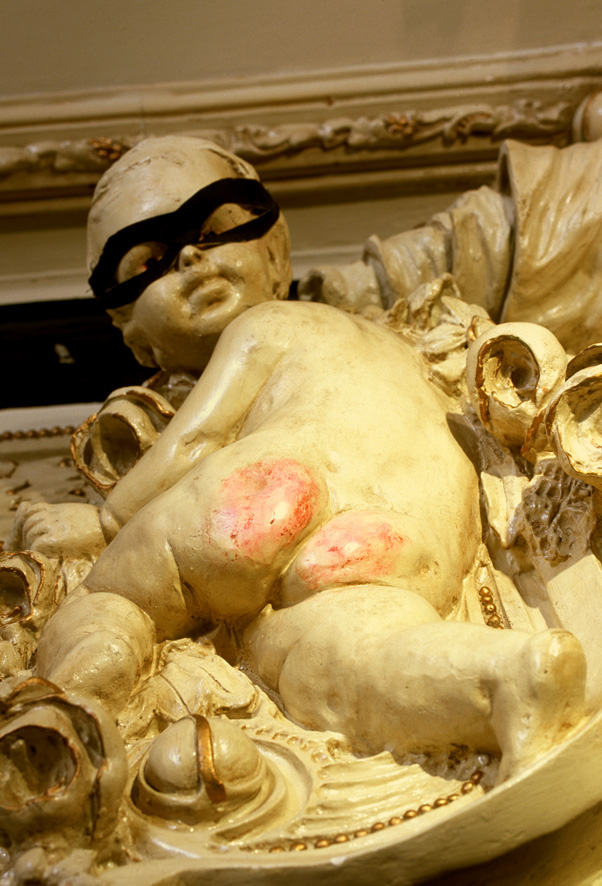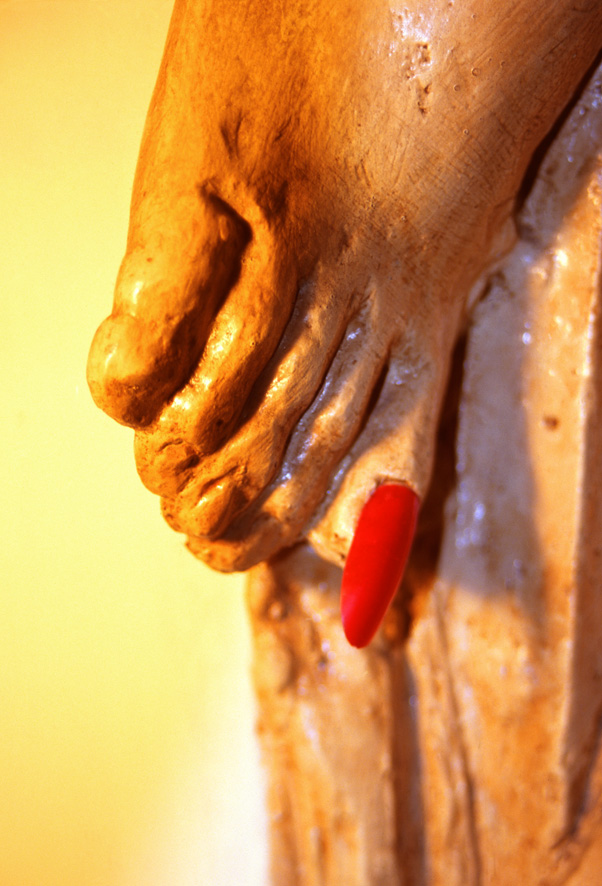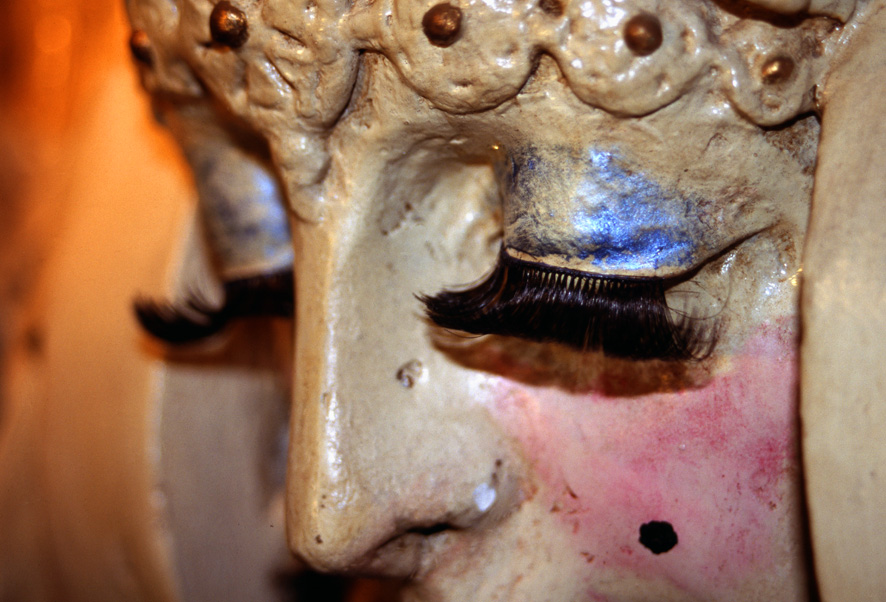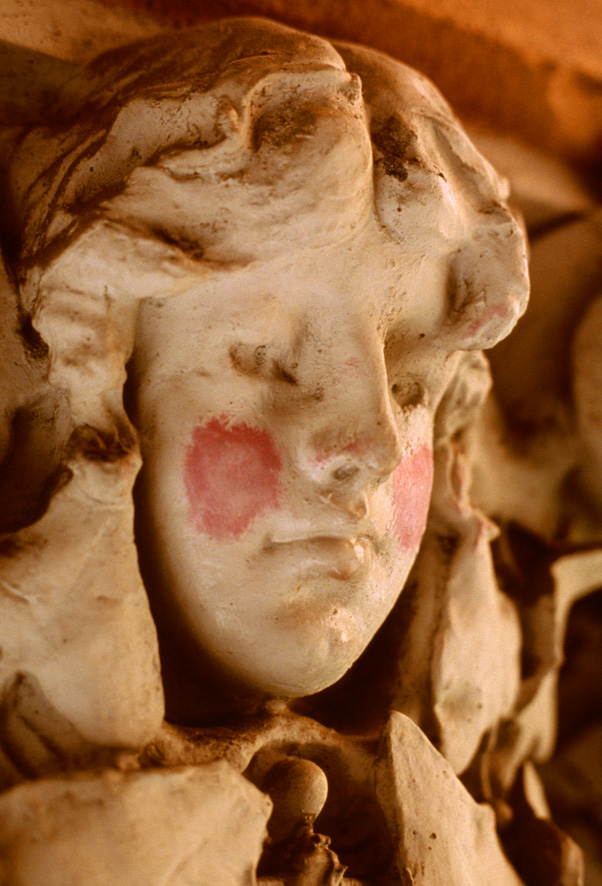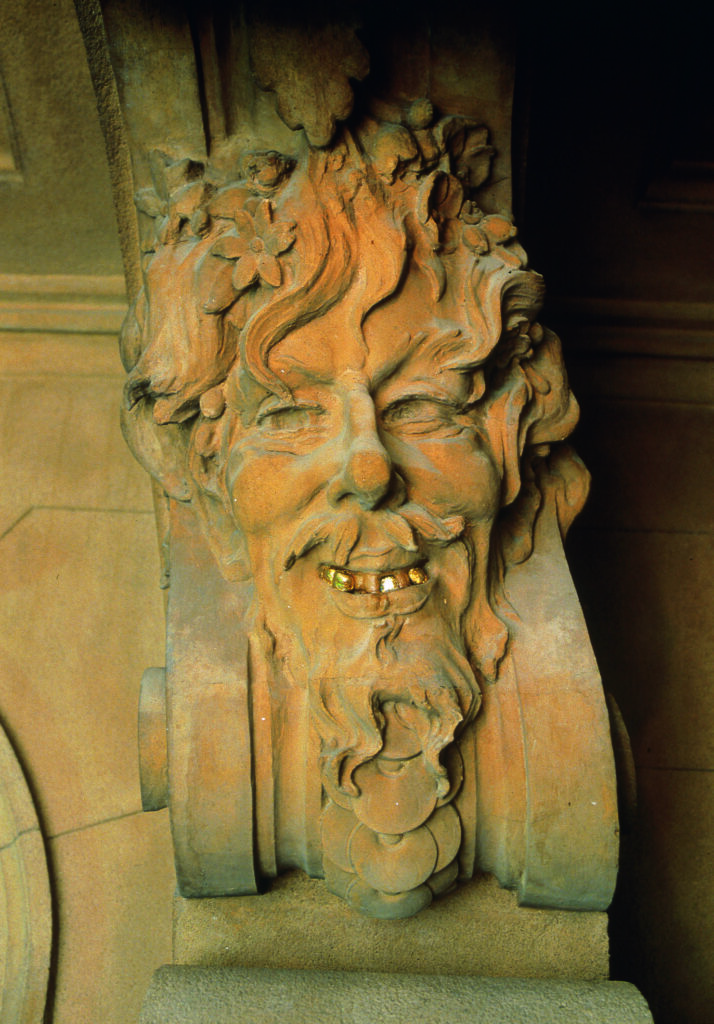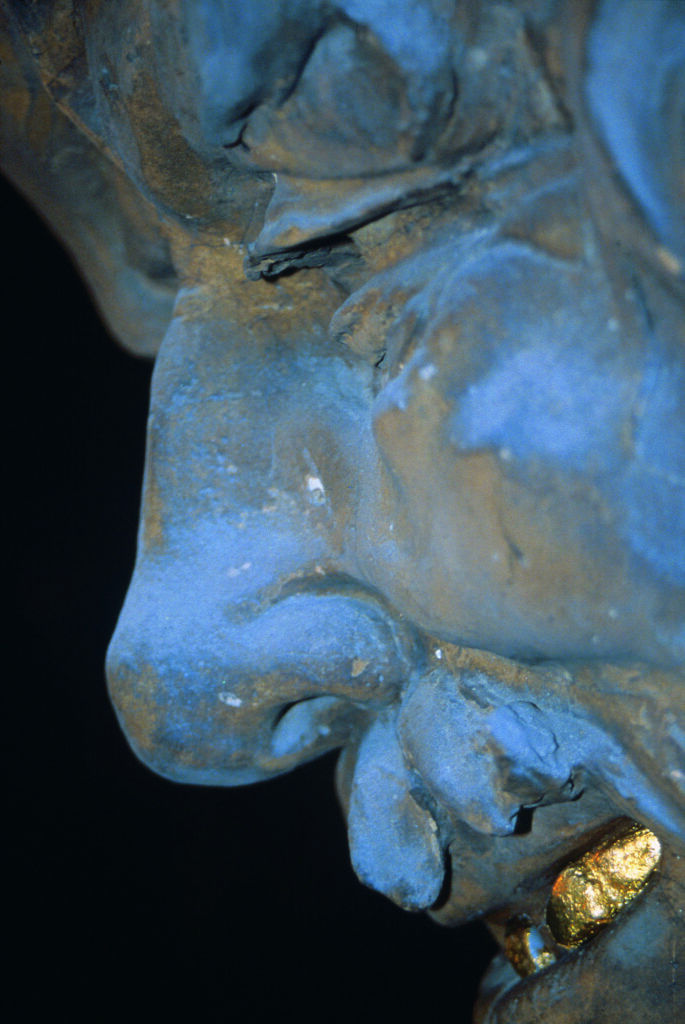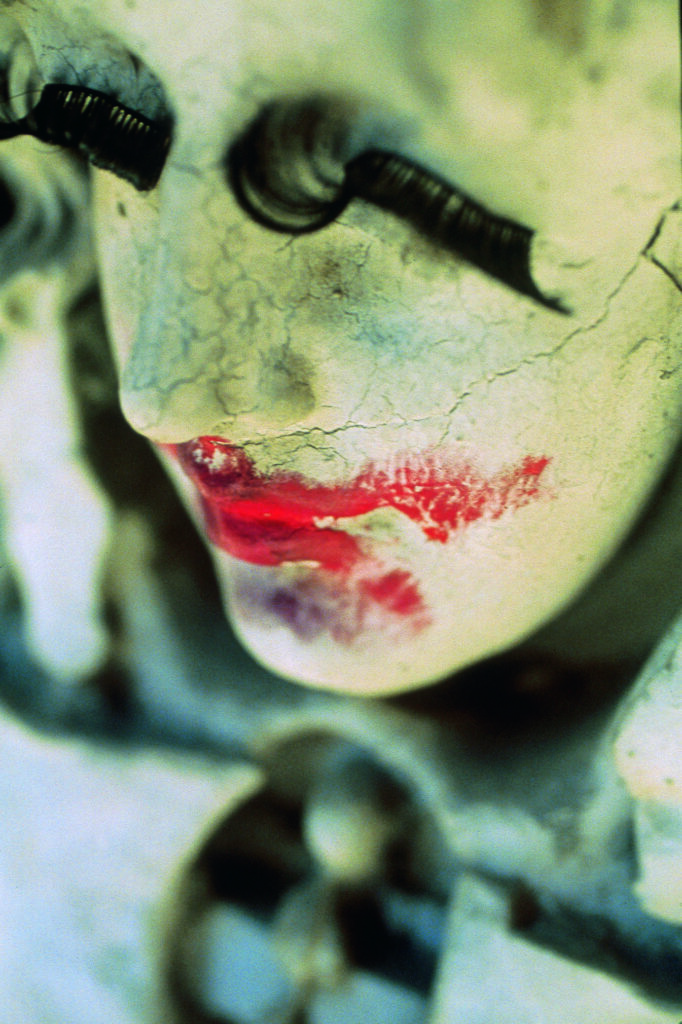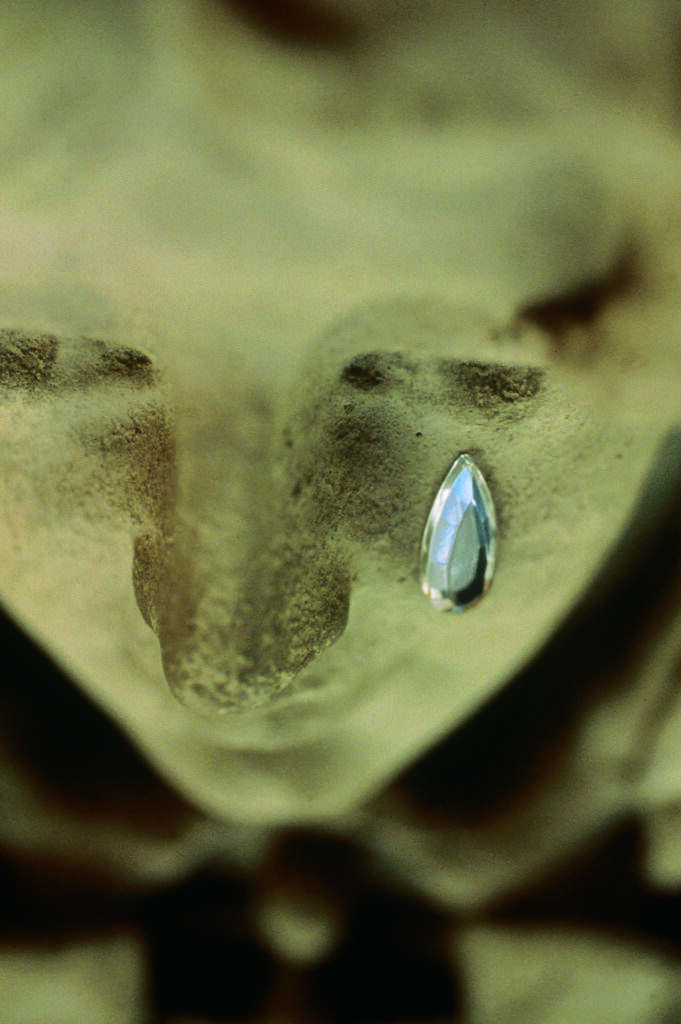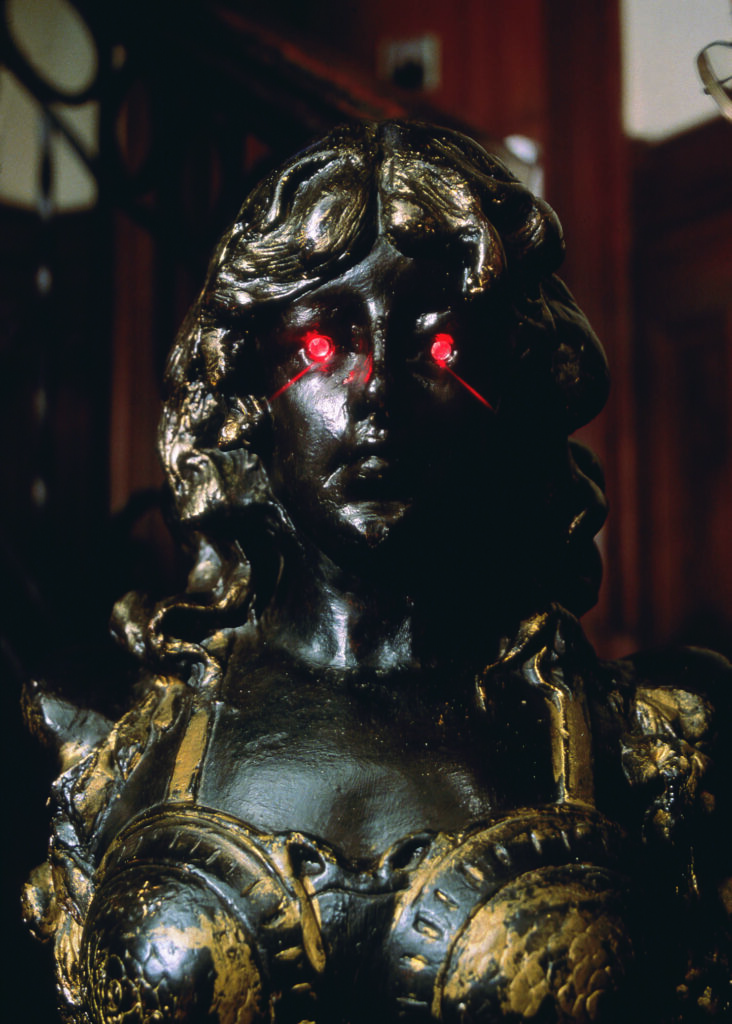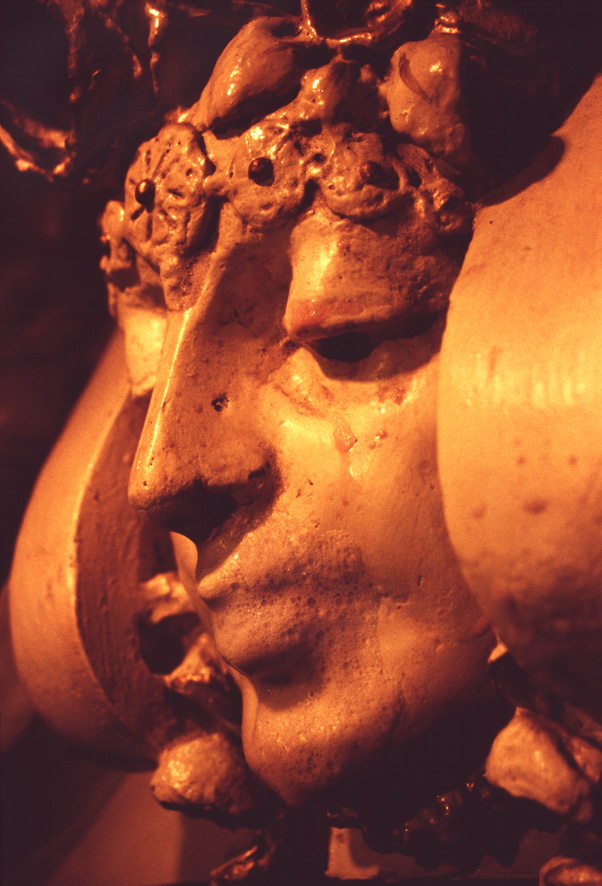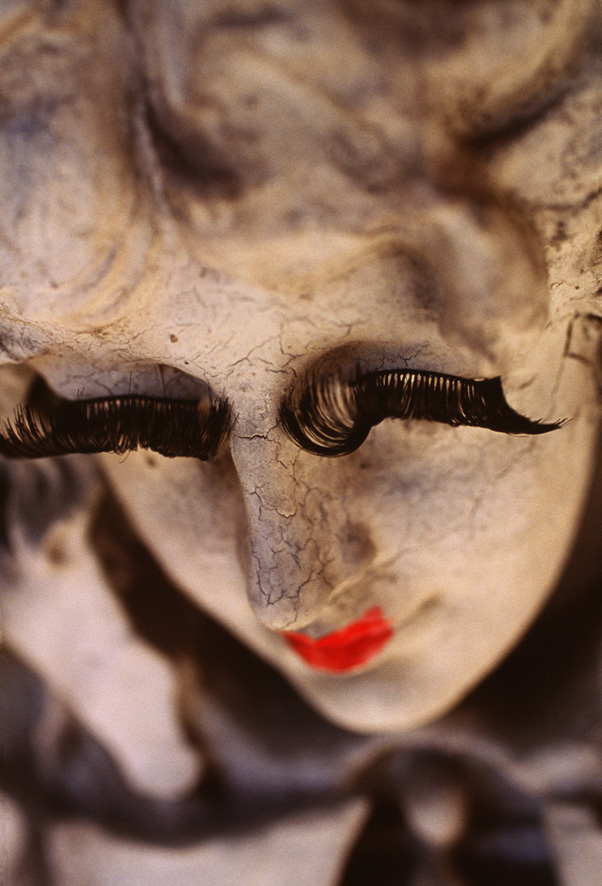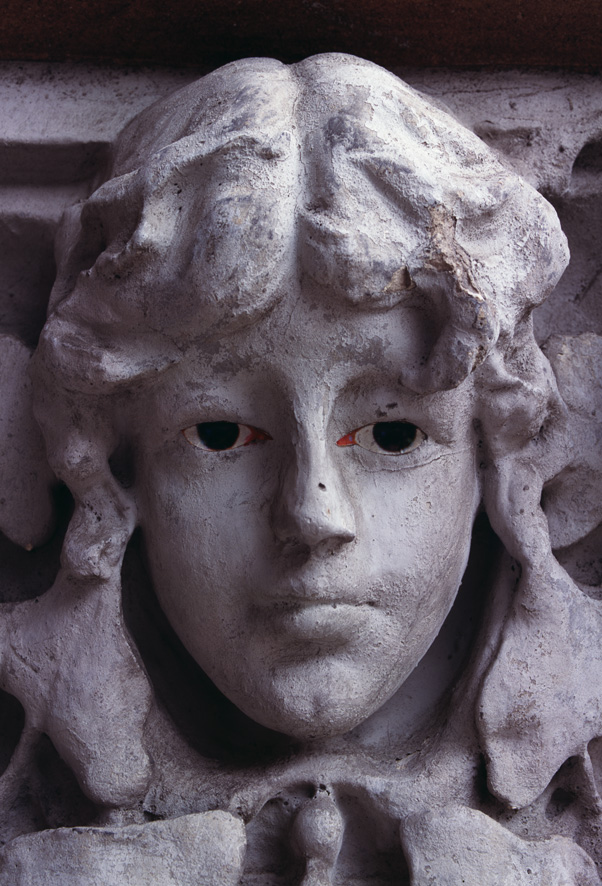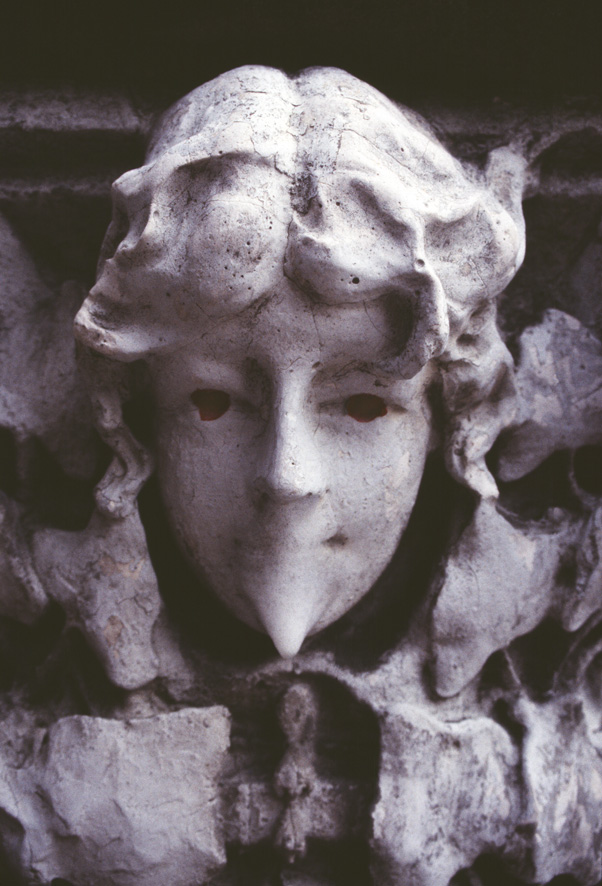
Eclectic

Castelinho do Flamengo, with its witches’ dwelling, would undoubtedly not have escaped the “intelligent cyclone” desired by Alcântara Machado to sweep away the eclecticism of Brazilian cities. Until it was transformed into a cultural center in the early 1990s, its fate, with successive predatory occupations bordering on demolition, is exemplary of the ideological force of the tabula rasa postulated by the moderns.[…]
It is also appropriations and displacements that make up the work of Marcos Chaves. From superimposed ornaments to gold thread ornaments linking gazes, tears, eyelashes, and multiple other appliqués, appearances emerge that reorient our perception of space. Between the original meanings and the different layers of meanings introduced, we have a kind of decentralization and fragmentation of what was intended to be a superior unity, that is, of eclecticism as a style, and of any historicist pretension. Investing in decoration, which is considered fake, kitsch and superfluous. Marcos Chaves operates in the invisible gap between language and the visible. And in this gap, his fine Witz appear as sparkles, in which humor destabilizes certainties.
If eclecticism delimits historical periods and practices of associating stylistic grammars, Eclectic, the adjective from which this exhibition derives and is named, refers to a conjunction of acts such as incorporating, copying, transforming, contaminating, appropriating and has its origins in Greece, the philosophical position of collecting the best of each school’s opinions. In a way, this has been a practice of Western thought, sometimes reconciling antagonistic foundations. Having questioned the teleological and evolutionary visions of art, and faced with fragmentation and the non-existence of metanarratives, the process of appropriation as a condition of individual artistic production has become widespread.[…]
Glória Ferreira
